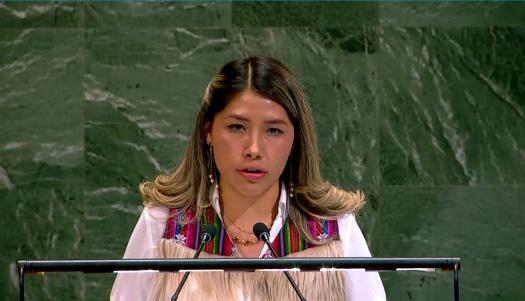
 The Inter-agency and Expert Group on Sustainable Development Goal Indicators (IAEG-SDGs) is the focal point on developing a global indicator framework for the 17 Sustainable Development Goals (SDGs) and the corresponding targets. The IAEG-SDGs Member States and observers increasingly recognized the need to integrate disability in the SDGs indicator framework, which is reflected in the recently released IAEG-SDG Report to the 47thsession of the UN Statistical Commission, which will be held in March 2016. This report proposes a list of indicators for the monitoring of the goals and targets of the 2030 Agenda for Sustainable Development at the global level. At that session, the Commission will decide on the adoption of the proposed list of SDG indicators.
The Inter-agency and Expert Group on Sustainable Development Goal Indicators (IAEG-SDGs) is the focal point on developing a global indicator framework for the 17 Sustainable Development Goals (SDGs) and the corresponding targets. The IAEG-SDGs Member States and observers increasingly recognized the need to integrate disability in the SDGs indicator framework, which is reflected in the recently released IAEG-SDG Report to the 47thsession of the UN Statistical Commission, which will be held in March 2016. This report proposes a list of indicators for the monitoring of the goals and targets of the 2030 Agenda for Sustainable Development at the global level. At that session, the Commission will decide on the adoption of the proposed list of SDG indicators.
Disability is reflected in the IAEG-SDG Report in two ways. First, the report calls for data disaggregation where relevant by disability. Secondly, nine indicators explicitly refer to persons with disabilities, an improvement in integrating disability from the three indicators included in the outcome document of the 2nd IAEG-SDG meeting in October 2015. These nine indicators are under six SDGs focusing on poverty eradication (Goal1), education (Goal 4), employment (Goal 8), reducing inequalities (Goal 10), inclusive cities (Goal 11), and promoting peaceful and inclusive societies (Goal 16).
To monitor these global indicators, international guidelines for collecting reliable and comparable data on disability will have to be further expanded, quality standards will have to be defined and good practices should be identified and followed. Furthermore, efforts should be made in enhancing the national and international capacity to transforming disability statistics into real policy impacts through establishing strong data reporting mechanisms and formal processes to inform policy through high-quality data.
Full Report of the Inter-agency and Expert Group on Sustainable Development Goal Indicators
 Welcome to the United Nations
Welcome to the United Nations


